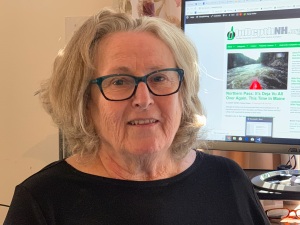
A controversial measure that could force Google and Facebook to pay for the news they repurpose has suddenly been revived in the last days of the lame-duck Congress. The Journalism Competition and Preservation Act, or JCPA, would allow news organizations to skirt antitrust law and band together so they can negotiate with the two giant platforms over compensation. If negotiations fail, an outside arbitrator would be brought in to impose a settlement.
On the “What Works” podcast, Ellen Clegg and I recently interviewed U.S. Rep. David Cicilline, D-R.I., one of the co-sponsors of the JCPA. Cicilline spoke of the measure in terms of breaking up Google and Facebook’s monopoly on digital advertising, which is certainly real enough. According to Statista, the two tech titans control 52% of the market.
I last wrote about the JCPA in August. And though I described the bill as having lurched back to life, there hadn’t been many signs since then that it was going anywhere. That is, until this week, when the measure was added to a “must pass” defense-funding bill. House Republicans oppose the JCPA, and with Rep. Kevin McCarthy, R-Calif., on the verge of taking the speaker’s gavel, right now is the last chance. Sara Fischer and Ashley Gold have the details at Axios.
In August, I expressed some reservations about the JCPA but thought it was worth passing to see what would come out of it, especially since it was time-limited to four years (since doubled to eight). You often hear simplistic claims by proponents that Google and Facebook are republishing journalistic content without compensation. In fact, they’re not republishing anything. There’s no stealing and no copyright violation taking place. But there’s also no question that Google is far more valuable and useful because users are able to search for news content, and that some not-insignificant portion of Facebook’s traffic comes from users linking to and commenting on news stories. It does not strike me as unfair to insist that the platforms pay something for that value.
And yet the JCPA carries with it the possibility of some real downsides. Greedy corporate owners like Gannett and Alden Global Capital would benefit without any obligation to invest more in journalism. And though the legislation excludes larger news organizations like The New York Times and The Washington Post, a similar law in Australia has served mainly to line the pockets of the press baron Rupert Murdoch.
A better bill, in my view, is the Local Journalism Sustainability Act, or LJSA, which would provide for three tax credits: one for consumers who pay for a local news subscription; one for advertisers; and one for publishers that hire or retain journalists. As Steve Waldman of the Rebuild Local News Coalition told Ellen and me on “What Works,” that last provision, at least, would only benefit the corporate chains if they actually invest in journalism. But the LJSA has been seemingly stuck in congressional limbo for several years. If the JCPA passes, I can’t imagine that the LJSA will do anything other than disappear.
Facebook is threatening to eliminate all news content if the JCPA becomes law, a threat similar to one that it made and backed away from in Australia. The company, formally known as Meta, also ended its program of supporting local journalism recently, which will remove millions of dollars from what is an already shaky revenue stream.
I have to say that I was struck by a letter of opposition to the JCPA issued Monday by a coalition of 26 public-interest and trade organizations including the ACLU, the Internet Archive, LION (Local Independent Online News) Publishers, Common Cause, the Wikimedia Foundation and the United Church of Christ Ministry (!). Among other things, the letter claims that the money will mainly benefit media conglomerates and large broadcasters without setting aside anything for journalists. The coalition puts it this way: “The JCPA will cement and stimulate consolidation in the industry and create new barriers to entry for new and innovative models of truly independent, local journalism.”
We’ll see how it works out. There’s no question that many local news organizations are in difficult straits, and that a guaranteed source of income from Google and Facebook may be the difference between thriving and just barely getting by. If the JCPA is approved, I just hope it doesn’t become one of those government programs that become a permanent part of the landscape. If it works, fine. If there are problems, fix them. And if it’s a disaster, get rid of it.









